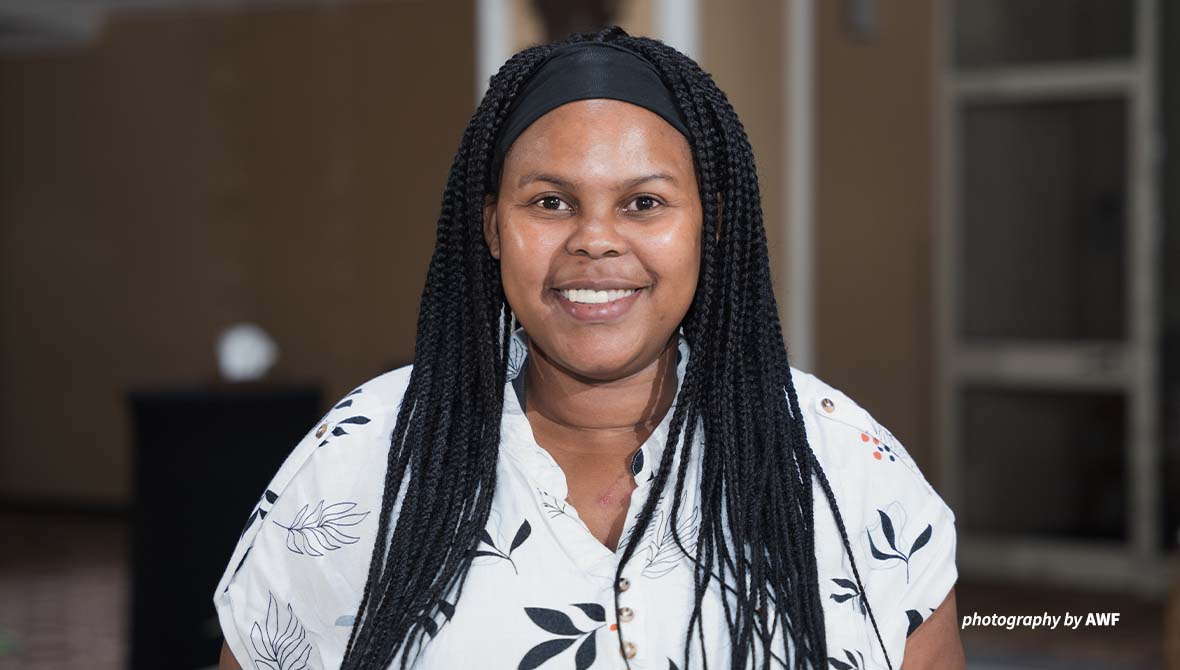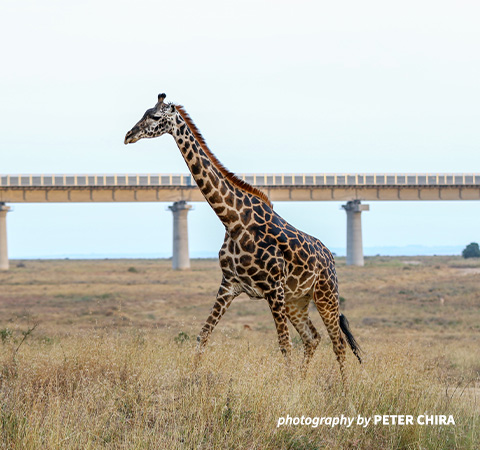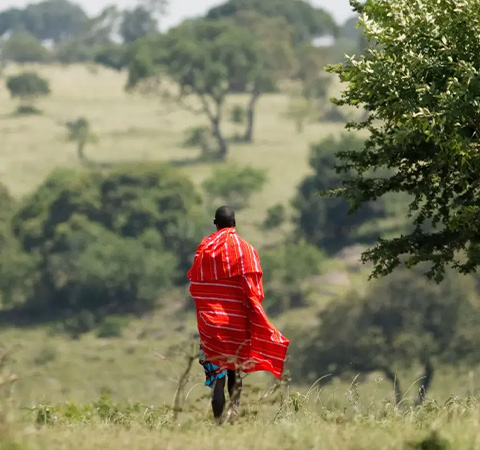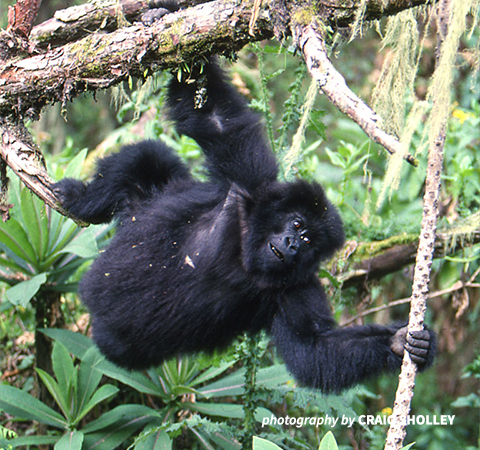Why AMCEN matters in delivering for people and biodiversity

Simangele Msweli is Senior Manager of AWF’s Youth Leadership Program
The African Ministerial Conference on the Environment (AMCEN) is a forum that brings together ministers, technical experts, and non-state actors from Africa’s environmental agencies to draft and chart forward biodiversity priorities for the continent. It is also a space for African negotiators to decide on a common agenda for global environmental conferences such as the Convention on Biological Diversity (CBD) and the United Nations Framework Convention on Climate Change (UNFCCC).
Simangele Msweli, Senior Manager of AWF’s Youth Leadership Program, explains in this interview why AMCEN negotiations matter and how Africa is developing its own economic solutions to biodiversity loss to curb over-reliance on inconsistent external financial sources.
What role does AMCEN play in setting an agenda for global and regional negotiations?
Even though we are a continent that has a lot of similarities, either in terms of challenges or opportunities, we were often found endorsing opposing positions and solutions at global conferences such as CBD and UNFCCC, without really having a unified voice on key matters that deliver for Africa. AMCEN provides a space where African countries agree on common and inclusive well-informed decisions that elevate Africa’s agency and priorities in alignment with the AU Agenda 2063 ambition at these international conventions.

The AGN is a network of African delegates to conventions like CBD and UNFCCC that aims to present a united voice for Africa. While the AGN on Climate Change and the AGN on Biodiversity have existed for some time, it was only in 2022 that AMCEN adopted a decision to establish an AGN on Wildlife, which will lead Africa’s engagement on wildlife issues, especially CITES.
Admittedly, there are some disagreements but experts from member states have attested that there are more commonalities when one looks at the bigger picture. One notable achievement over the past few years is that AMCEN decisions have brought about the realization of several African Groups of Negotiators (AGN) to the different conventions, and AWF is currently following up on one such decision from the resumed eighteenth session of AMCEN (hosted in September 2022), the establishment of the AGN on Wildlife. Among other things, the AGN on Wildlife will lead Africa’s engagement on key wildlife issues which have been divisive in the past, especially at the Convention on International Trade in Endangered Species of Wild Fauna and Flora (CITES).
When you look at the Kunming-Montreal Global Biodiversity Framework (KM GBF) that was adopted late last year, Africa, through AMCEN, was very clear about its positions. For instance, while pushing for the Global Biodiversity Fund and a decision on Digital Sequence Information at the global stage, Africa was speaking as one voice, one region. Despite the fact that what was adopted did not fully reflect the continent’s vision, the unified approach saw the creation of the GBF Trust fund, where the GEF Council adopted a decision on directives with mention that about 20 percent of the funds must flow to Indigenous Peoples and Local Communities (IPLCs) and emphasis on the need to take into account Target 22 of the KM GBF in the design and implementation of projects to be funded by the Trust Fund.

Target 22 of the KM GBF states: “Ensure the full, equitable, inclusive, effective and gender-responsive representation and participation in decision-making, and access to justice and information related to biodiversity by indigenous peoples and local communities, respecting their cultures and their rights over lands, territories, resources, and traditional knowledge, as well as by women and girls, children and youth, and persons with disabilities and ensure the full protection of environmental human rights defenders.”
Economic solutions are on the agenda this year at AMCEN. How can we unlock economic value to conserve nature?
I think one of the biggest conservation discussions from this decade has been around the great strides and decisions that have created ambitious projects that are in dire need of funding to scale for impact. The limited conservation finance that is available has had a looming question around its accessibility, especially to local actors who would channel these funds into implementing the progressive work on the grassroots level where it matters most.
To address such challenges, Africa must work towards having its own sustainable financing solutions in addition to holding the high-emitters that have contributed significantly to biodiversity loss and climate change to account.
Finance models such as A Pan-African Conservation Trust (A-PACT) are very important. A-PACT, for example, is not a model that is designed to be dependent on donors for a long-term period. Instead, it is projected to sustain itself beyond the lifeline of any donor through domestic investments, which in turn advances ownership and agency of our own natural resources.
Additionally, this also ushers in the discussion around biodiversity economies in Africa. The only way Africa can leapfrog to a resilient future is to ensure people are at the center of the development of these proposed economic models, thus promoting ownership and a culture that will live on for generations to come.

Biodiversity economies, also known as wildlife economies, use wildlife—plants and animals—as assets to create economic value in ways that align with conservation objectives and contribute to sustainable development. Learn more about wildlife economies.
It is undeniable that a lot of countries have made great strides in the tourism sector, having it contribute a significant revenue of their GDP and others using the proceeds to finance conservation, but not all countries in Africa are actually reaping similar benefits. So, AWF strongly advocates for the world to acknowledge Africa as part of the solution, finding solutions that work for us and not necessarily being dependent on external parties to always provide funding that only serves for a short term.
It is, however, not all gloom and doom, as it is important to note that the newly adopted fund from COP15 is the first of its kind that provides a clear percentage of money that must flow to local actors and reduces the administrative burden of accessing conservation finance. And AWF considers this a very big achievement. It is inevitable that this will be a key discussion at the AMCEN meeting this week, and we are keen to follow how this will contribute towards the upcoming Seventh GEF Assembly that is anticipated to create enabling mechanisms for the implementation of the GBF.
What pre-conference activities take place at AMCEN, and how does AWF engage?
This past weekend, the AWF at AMCEN team was part of the Regional Consultative Meeting (RCM) of UNEP Major Groups and Stakeholders Africa, where non-state actors gathered to dialogue on AMCEN agenda items and share their proposed priorities and interventions. In line with our commitment of supporting and amplifying African leadership, AWF provided some logistical support to RCM and the AWF delegation comprised of four young professionals who are part of the Charles R. Wall Young African Policy fellows as well as two leaders from the African CSOs Biodiversity Alliance.